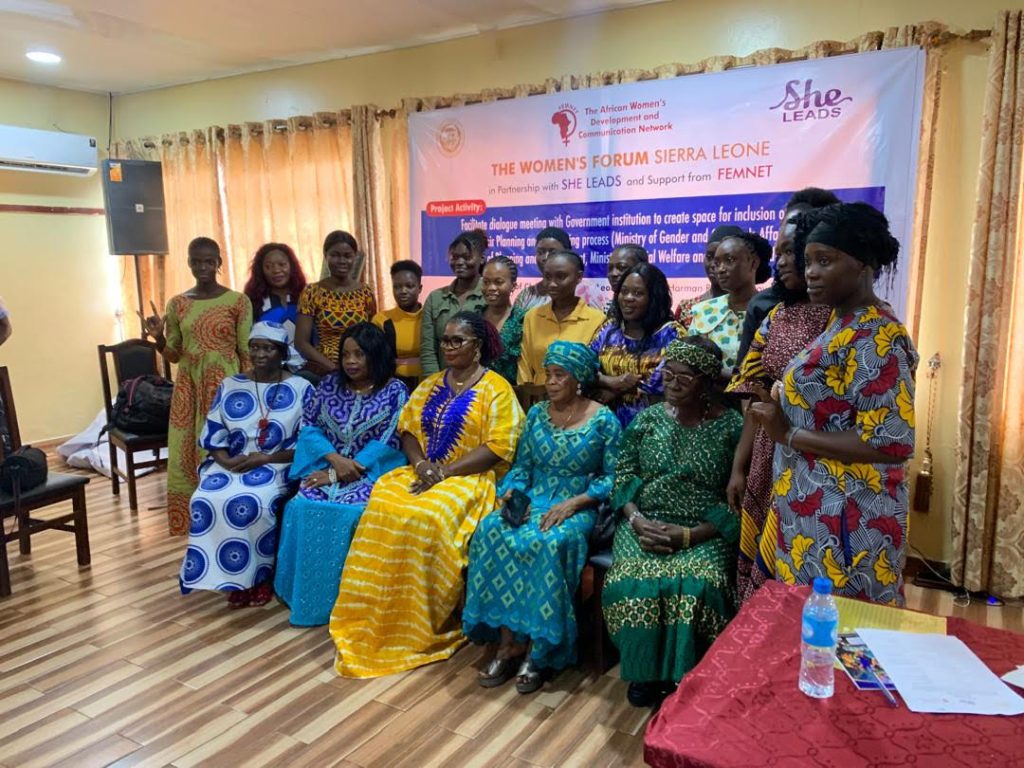The Women’s Forum Sierra Leone organized a significant one-day dialogue to increase the participation of girls and young women (GYW) in national planning and monitoring. This event, held on Friday at the Council of Churches in Sierra Leone Hall on King Harman Road, was part of the larger ‘She Leads’ project, which is supported by FEMNET.
The ‘She Leads’ initiative aims to increase GYW participation in national development by engaging them actively in decision-making processes. Sally Adams, National President of the Women’s Forum Sierra Leone, emphasized the organization’s commitment to women’s and children’s rights since its inception in 1994. She proudly stated that the forum has registered more than 300 women’s organizations across the country, demonstrating its dedication to advocacy and empowerment.
Adams described the ‘She Leads’ project as a collaboration between five international organizations, with its headquarters in the Netherlands. In Sierra Leone, the project is run by a consortium that includes Defence for Children International, Plan International, and the Women’s Forum Sierra Leone, which represents FEMNET. The initiative’s goal is to increase GYW representation in decision-making processes while also challenging and transforming gender norms in both formal and informal institutions.
During her speech, Adams emphasized the project’s goal of empowering girls and young women to take on leadership roles in a variety of fields, particularly at the national level. The project spans nine African countries, including Sierra Leone, and urges the government to create and maintain spaces for the active participation of girls and young women in planning and monitoring processes, particularly those involving their rights.
Dr. Isata Mahoi, Minister of Gender and Children’s Affairs, praised the Women’s Forum for its extensive national reach and emphasized the critical importance of collaboration among stakeholders. She noted that the current parliament has nearly 50% female representation and emphasized the continued need to empower women as a catalyst for societal development. Dr. Mahoi encouraged young people, particularly girls, to think about their futures and to express their concerns through national development programs.
Worokia Conteh, Director of the Ministry of Social Welfare, emphasized the importance of education as a key component of empowerment. She urged young girls to prioritize their education and encouraged parents to actively monitor their children, particularly their daughters. Conteh also mentioned the Ministry’s parenting program, which is intended to protect children’s futures.
Elizabeth Sheriff, Gender Focal Point at the Ministry of Planning and Economic Development, unveiled the Ministry’s ambitious new seven-year strategic plan, which includes a goal of creating 500,000 jobs for youth, with 30% set aside specifically for young women. She reaffirmed the Ministry’s commitment to gender empowerment and support for young women, which is consistent with the President’s overall development goals.
Rosaline McCarthy, representing Civil Society Organizations (CSOs), emphasized the importance of protecting children, particularly girls, and ensuring women’s active participation in national decision-making processes. The dialogue provided an important platform for ensuring that girls and young women are included in national development with the attention and implementation they deserve.
